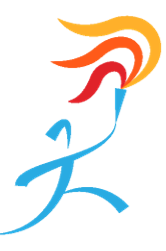Over the years, I have learned that injury is one of the most common reasons why people stop exercising. Before I became a certified personal trainer, I too, would get injured often and miss exercising for months. However, strict adherence to the following guidelines have helped me exercise injury free for five years and counting:
- Invest in good shoes: Protect your feet and the rest of the musculoskeltal structure by buying good fitting shoes designed for the intended use. Poorly fitted shoes can cause injuries that could go unnoticed for months, even years, due to wear and tear to the joints.
- Learn proper exercise form: Many exercises, especially weight bearings, can be harmful to your joints and spine, if done improperly. In the very least, read directions that are printed on the equipment in the gym before using it, but the best thing to do is to hire a “good” certified personal trainer who can show proper form for the exercises that are suited to your purpose.
- Start out slow: The muscles and the central nervous systems require some time to adjust to a new exercise. Body takes a few days to “recruit” the right group of muscles involved in a new exercise. Therefore, it is important to start out slow. Which means, use smaller weights, fewer reps, and fewer sets than you think you can do. The progression of exercise to a “routine set” could take one to four weeks depending on age and the level of fitness of the trainee.
- Use a spotter, when using heavy weights: A trained spotter must be used when training with heavy weights, “trained” being the operative word. An untrained spotter can make things worse by causing injury to you as well as himself or herself.
- Warm up and Stretch: Don’t do intense exercises without a proper warm up, which should include 10-15 minutes light cardio and stretching.
- Rest: Give your body plenty of rest between work out sessions so that it can recover and/or grow. There is such a thing as “over training”! Avoid it.
- Eat well: Nourish your body with nutrition rich food! Not only you have to manage a good balance of carbohydrates, proteins, and fats along with other macro and micro nutrients, but also keep tabs on caloric intake to align with your body weight loss or weight gain goals.
- Don’t let your ego bruise you: Remember you are trying to be a better version of yourself! You are not competing with anybody else! Don’t try to emulate or, get discouraged by looking at others, who might have hit a genetic lottery, or, are professional athletes, or, are using steroids.

